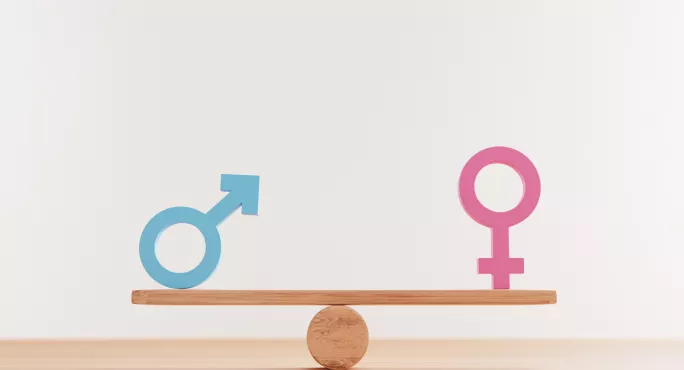Call on Ofsted to probe ‘gender equity’ in schools

A leading scientist has urged Ofsted to focus on “gender equity” as part of their school inspections to ensure girls are not discouraged from taking subjects such as physics.
The recommendation came from Dame Athene Donald, master of Churchill College and professor emerita of experimental physics at the University of Cambridge.
Giving evidence to MPs on the Commons Science and Technology Committee today, Dame Athene said that schools needed to provide active encouragement to ensure girls did not take on the idea that certain subjects might not be for them.
- Head: Girls shun physics because of the hard maths
- A levels: Stem gender gap ‘larger in wealthier schools’
- Background: Scrapped early-career payment scheme boosted teacher retention
The committee held a session today on diversity and inclusion in STEM subjects (science, technology, engineering and maths). Here are the key points MPs were told.
Ofsted urged to look at gender equity
Dame Athene told MPs that there may be “internal messages that girls may believe” about whether studying science is for them unless teachers are actively trying to counter this.
She added that schools “may not realise that the girls being driven by things that aren’t their natural choices”.
She was asked about previous evidence given by headteacher and chair of the Social Mobility Commission Katharine Birbalsingh, who had said that at her school, 16 per cent of pupils taking A-level physics were girls.
Dame Athene said: “I would assume that is just because it has not been an item on their agenda…If Ofsted made gender equity an issue then every school - in primary schools as well - would have to think: what are we doing?”
She added: “One of the things that the Institute of Physics has picked up when observing classrooms is that teachers are more likely to ask boys to answer a question. There may be all kinds of reasons for that but that immediately says to girls ‘we are not really interested in you’.”
Dame Athene said it would be interesting to know if there is also “gendering in some of the subjects that typically boys don’t do”.
Call for whole-school equity plans
Rachel Youngman, the deputy chief executive at the Institute of Physics, highlighted the impact of schools having equity plans when she gave evidence to MPs.
She said this involves the whole school working to ensure they create an inclusive environment.
“I would refer to the Noel-Baker Academy, in Derby, that has recently received a ‘good’ Ofsted inspection having before been ‘inadequate’.
“They have spent a lot of time embedding that and I think it would be worth looking at what they’ve done from curriculum all the way through and involving the parents.”
Choosing science GCSE options too early ‘can disadvantage students’
Ofsted’s schools and subject lead for science Jasper Green warned against students being asked to make choices about the subject at GCSE too early.
He said: “In English schools, you can do triple science or double science. If that choice comes too early, you end up disadvantaging certain groups who haven’t had sufficient time to actually develop their scientific knowledge to meet the criteria to do double science.
“That is one of the areas research and our own work has identified: that if that comes too early - say, in Year 8 or Year 9 - then you are potentially disadvantaging a number of pupils from doing triple science.
He added: “Then that has an impact in terms of those pupils that go on to do a A level because a higher proportion of pupils who do that triple science go on to participate in A-level science.”
Status raising in primary schools
Dr Green said that the removal of key stage 2 Sats in science had happened alongside the subject being given less priority in some primary schools.
He said: “I think science is a core subject in the national curriculum. I think its status potentially needs to be raised in primary.
“The removal of key stage 2 Sats in science has coincided with a potential deprioritisation of science in some schools.”
Expert dismisses idea that girls don’t like hard maths
Carol Monaghan MP asked if there was any truth in comments made by Ms Birbalsingh at an earlier committee hearing that girls do not like hard maths.
Professor Ulrike Tillmann, president at the London Mathematical Society, replied: “I just don’t see that evidence, frankly. Girls, like boys, like challenges and, indeed, hard maths is only hard if you don’t understand it.
“Mathematics is something [which] once you understand it is actually easy, and it’s illuminating and empowering, and I think girls like that just as much as boys.”
She added that results show that girls perform “at least as well and probably a little bit better at both GCSE and A level maths”.
You need a Tes subscription to read this article
Subscribe now to read this article and get other subscriber-only content:
- Unlimited access to all Tes magazine content
- Exclusive subscriber-only stories
- Award-winning email newsletters
Already a subscriber? Log in
You need a subscription to read this article
Subscribe now to read this article and get other subscriber-only content, including:
- Unlimited access to all Tes magazine content
- Exclusive subscriber-only stories
- Award-winning email newsletters



